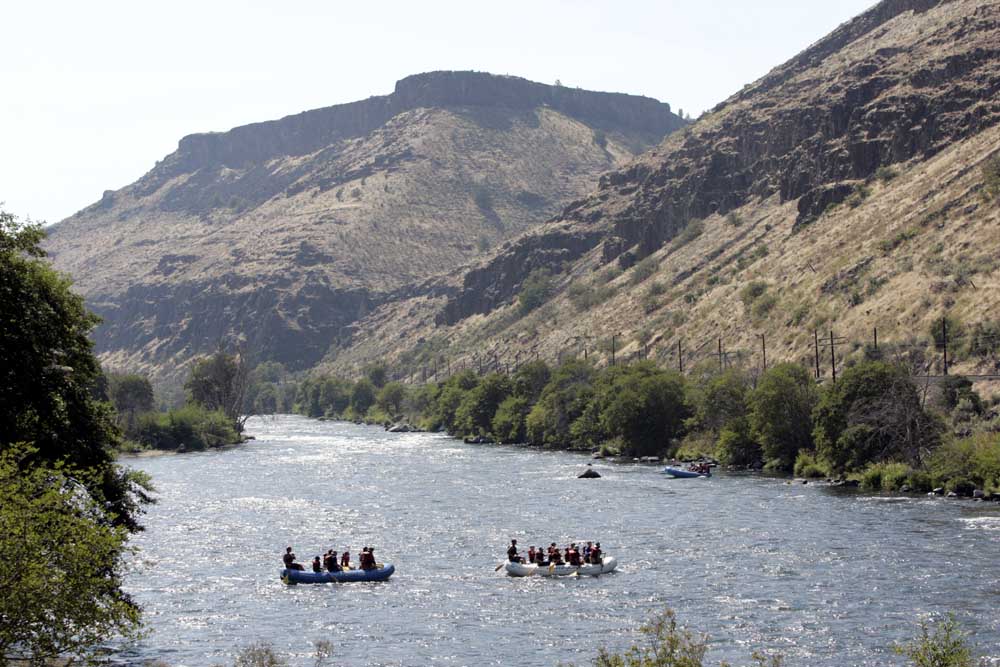Objection to Deschutes River lawsuit denied
Published 9:03 am Thursday, March 30, 2017

- Rafters often enjoy a float down the Lower Deschutes River Maupin. . (Bulletin file photo)
A lawsuit alleging that a dam complex on the Deschutes River has violated portions of the Clean Water Act and harmed the local ecosystem is free to move forward after the U.S. District Court in Oregon rejected a motion for dismissal from the property co-owner.
On Monday, U.S. District Court Judge Michael Simon denied a motion from Portland General Electric, which co-manages the Pelton Round Butte Hydroelectric Project in Oregon, to dismiss a lawsuit from the Deschutes River Alliance. Jonah Sandford, executive director for the alliance, said the decision is not only beneficial to fish and insect populations along the Lower Deschutes River, but sets an important precedent for river conservation work across the country.
“It’s a great decision for the Deschutes, but it’s also great for river conservation work across Oregon, across the Pacific Northwest,” Sandford said.
After the Deschutes River Alliance, an advocacy organization based in Maupin, sued Portland General Electric in August, the utility responded by filing a motion to dismiss the lawsuit in September. The motion contends that the federal Clean Water Act of 1972 grants the licensing entity — the Federal Energy Regulatory Commission, in this case — exclusive jurisdiction over licensing and regulating hydropower resources. Sandford said the judge’s decision to reject the motion provides a precedent that can be used in similar cases involving the act.
Michael Campbell, an attorney for Stoel Rives LLP, which represented PGE, declined to comment. Stan Sittser, spokesman for the utility, provided a statement following the decision, but did not comment further.
“We’re confident that we’re in compliance with our license and all applicable environmental standards in our operation of the project, and will contest the allegations in the lawsuit in due course,” the statement reads.
PGE co-manages the Pelton Round Butte Hydroelectric Project, which includes three dams along an approximately 20-mile stretch of the Lower Deschutes, as well as facilities designed to restore salmon and other fish populations, with the Confederated Tribes of Warm Springs. As part of a relicensing process in 2002, the Oregon Department of Environmental Quality issued a water quality certification, in accordance with the Clean Water Act.
The Deschutes River Alliance, which was founded in 2013 to address growing ecological concerns on the Lower Deschutes, alleged that Portland General Electric committed “in excess of 1,200 violations” of those standards, including requirements on temperature and pH balance, through its management of the project.
In part because water in the Lower Deschutes River has regularly been warmer and more alkaline-heavy than the certification requires, Sandford said the organization has noticed several changes to the river’s ecosystem, including an uptick in algae.
“We’re seeing a really rapid proliferation of nuisance algae,” Sandford said.
Additionally, the shift in water temperature has also impacted insects and animals that feed on them. For a community along the Deschutes River like Maupin, which relies heavily on fly-fishing, Sandford said any shift in insect populations can be a problem.
While there’s no timeline at this point, Sandford said the organization plans to move forward with the suit.
“This decision paves the way to restore colder, cleaner water to the Lower Deschutes,” he said.
—Reporter: 541-617-7818, shamway@bendbulletin.com






